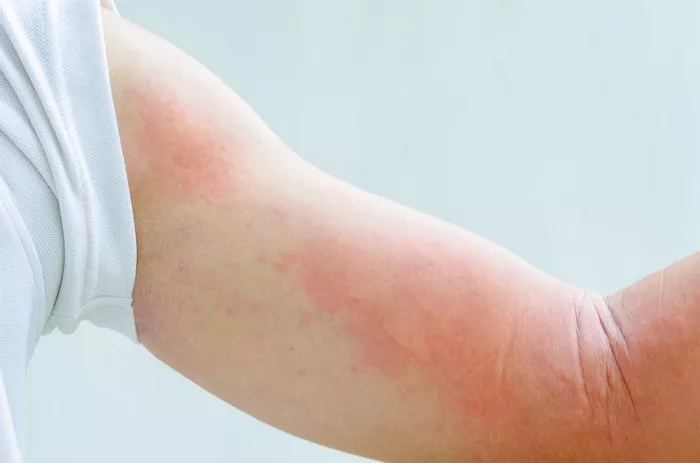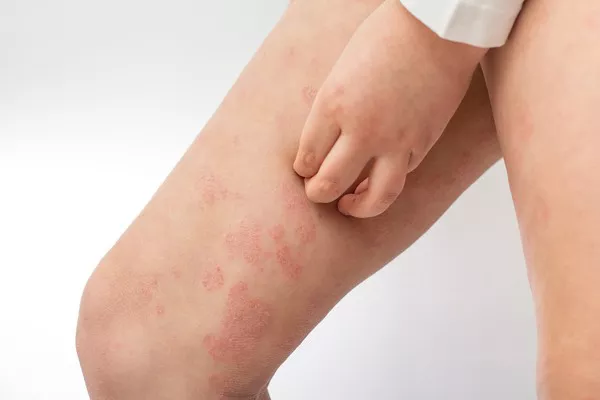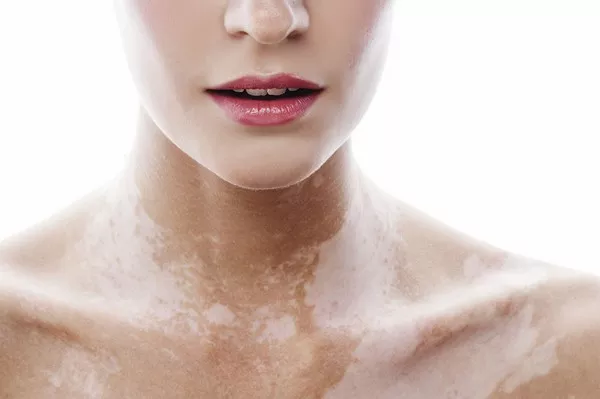Hives, medically known as urticaria, are a common skin condition characterized by itchy, red welts that appear on the skin. They can vary in size, from small spots to large patches, and may appear anywhere on the body. Hives can be acute, lasting for a short duration, or chronic, persisting for six weeks or longer. One of the most persistent myths about hives is that scratching them can cause them to spread. This article delves into the nature of hives, the effects of scratching, and the best practices for managing this uncomfortable condition.
What Are Hives?
Definition and Symptoms
Hives are a type of rash that arises due to the release of histamine and other chemicals from under the skin’s surface. This release is often a response to an allergen, but hives can also result from non-allergic triggers. Symptoms of hives include:
- Raised, red, or skin-colored welts (wheals) that appear and disappear at random.
- Itching, which can be intense.
- Pain or burning in the affected areas.
- Swelling, especially around the eyes, lips, hands, feet, and throat (in severe cases).
Causes of Hives
Hives can be triggered by a variety of factors, including:
- Allergies: Common allergens include foods (such as nuts, shellfish, and eggs), medications (such as antibiotics and NSAIDs), and insect stings.
- Physical triggers: Heat, cold, sunlight, water, pressure, and exercise can induce hives in susceptible individuals.
- Infections: Viral, bacterial, and fungal infections can lead to hives.
- Stress: Emotional stress can exacerbate or trigger hives in some people.
- Underlying medical conditions: Chronic conditions like thyroid disease, lupus, or certain cancers can be associated with chronic hives.
The Myth: Scratching Spreads Hives
One of the most prevalent misconceptions about hives is that scratching them can cause them to spread to other parts of the body. This belief likely stems from the observation that scratching can exacerbate the appearance of hives, making it seem as though they are spreading.
The Mechanism of Hives
To understand why scratching does not cause hives to spread, it is crucial to understand the underlying mechanism of hives. When an allergen or trigger is detected by the immune system, mast cells in the skin release histamine and other inflammatory chemicals. This causes the blood vessels to dilate and become more permeable, leading to the leakage of fluid into the surrounding tissue. The result is the characteristic swelling and redness of hives.
Scratching and Its Effects
While scratching does not spread hives, it can have several negative effects:
- Increased Histamine Release: Scratching can cause more mast cells to release histamine, leading to an increase in the size and number of welts.
- Skin Damage: Persistent scratching can damage the skin, leading to open sores and an increased risk of infection.
- Heightened Itching: Scratching can create a vicious cycle of itching and scratching, making the condition more uncomfortable and harder to manage.
Why Hives Seem to Spread
The perception that hives are spreading can be explained by several factors:
- New Welts: New hives can appear while old ones are fading, creating the illusion of spreading.
- Dermographism: In some individuals, scratching the skin can cause new hives to form in the shape of the scratch marks. This condition, known as dermatographic urticaria or dermographism, occurs due to the physical trauma of scratching.
- Psychological Impact: Anxiety and stress about the appearance of hives can heighten awareness of new welts, making it seem as though they are spreading more rapidly than they are.
SEE ALSO: The Best Lotion for Hives
Managing Hives Effectively
Avoiding Triggers
The first step in managing hives is to identify and avoid potential triggers. This can involve:
- Keeping a Diary: Recording foods, activities, medications, and environmental factors that coincide with outbreaks can help identify triggers.
- Allergy Testing: Consulting with an allergist for skin or blood tests can pinpoint specific allergens.
- Avoiding Known Triggers: Once identified, avoiding or minimizing exposure to known triggers is crucial.
Medical Treatments
Several medical treatments can help manage the symptoms of hives:
- Antihistamines: These medications block the effects of histamine and can reduce itching and swelling. Both over-the-counter and prescription options are available.
- Corticosteroids: For severe or persistent cases, corticosteroids like prednisone can reduce inflammation. These are usually prescribed for short-term use due to potential side effects.
- Biologics: Omalizumab (Xolair) is an injectable medication that can be effective for chronic hives that do not respond to other treatments.
- H2 Blockers: Medications like ranitidine or famotidine can be used in conjunction with antihistamines to block histamine receptors in the stomach, providing additional relief.
Home Remedies and Lifestyle Changes
In addition to medical treatments, several home remedies and lifestyle changes can help manage hives:
- Cool Compresses: Applying cool compresses to the affected areas can reduce itching and swelling.
- Loose Clothing: Wearing loose-fitting, lightweight clothing can prevent irritation and overheating.
- Oatmeal Baths: Adding colloidal oatmeal to bathwater can soothe the skin and reduce itching.
- Stress Management: Practicing stress-reducing techniques such as yoga, meditation, or deep breathing can help minimize hives triggered by stress.
- Avoiding Hot Showers: Hot water can exacerbate itching. Opting for lukewarm showers can be more soothing for the skin.
When to See a Doctor
While many cases of hives can be managed at home, certain situations require medical attention:
- Severe Symptoms: If hives are accompanied by difficulty breathing, swelling of the face or throat, or dizziness, seek emergency medical care. These could be signs of anaphylaxis, a severe allergic reaction.
- Chronic Hives: If hives persist for more than six weeks, consult a healthcare provider. Chronic hives can be a sign of an underlying health condition that needs to be addressed.
- Unresponsive to Treatment: If over-the-counter treatments and home remedies do not provide relief, a doctor can prescribe stronger medications or recommend alternative treatments.
Conclusion
Hives, while often uncomfortable and distressing, are typically not a cause for serious concern. The belief that scratching hives causes them to spread is a myth; however, scratching can exacerbate symptoms and lead to further complications. Effective management involves identifying and avoiding triggers, utilizing appropriate medical treatments, and incorporating home remedies and lifestyle changes. By understanding the nature of hives and how to manage them, individuals can reduce the frequency and severity of outbreaks, leading to improved quality of life.
Related Topics:


























